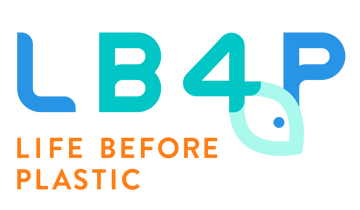Plastic-Free July: Sustainable Bathroom Swaps
Plastic-free July is the time of year where millions of people join together to cut down on their plastic use. We've been plastic free for two years and as a plastic free shop we have the tools to help you complete the challenge.
Each week we'll be talking about the impacts of plastic products on different areas of your life and provide you with a handy guide of eco alternatives.
We'll demonstrate how being plastic free can be just as convenient as buying products made with single-use plastic.
This week we're talking about sustainable bathroom swaps and why you should switch.
Let's get started.
1. Body wash
Depending on your household and number of showers taken, a bottle of shower gel can last anywhere between one week – I was shocked too - to two months. While the bottles are recyclable, the hard truth is that not every household in the UK recycles. It’s estimated that of the 35 million plastic bottles used everyday, only 19 million are recycled.
That’s not all. Not only do body washes have a negative impact on the environment but they also aren’t great for our skin. Shower gels are notorious for containing all sorts of chemicals.
Skincare products don’t yet have to meet the same standards as other goods. This leaves the market free to produce products with ingredients like parabens, synthetic colours, fragrances, phthalates, triclosan, SLS etc. They have been linked to health conditions such as cancer, birth defects, immune system issues, skin irritation and allergies.
On the other hand, a bar of soap in my household, with two adults showering once daily, lasts us around one month. The soap bar is wrapped in recyclable paper with zero waste.
Not only is there no waste, as the soap bar is natural, it doesn’t contain any of the harmful chemicals listed above. Switching to a soap bar is one of the easiest and most impactful plastic-free swaps you can make today.
Take a look at the full range of natural soap bars.

2. Plastic toothbrushes
An average person uses one toothbrush every 3 months. If you were to live to 80 years old, you would have used over 300 toothbrushes in your lifetime. And what if none of those were biodegradable?
Plastic toothbrushes litter our landfills, our beaches, our oceans. It’s predicted that it will take around 400 years for a plastic toothbrush to decompose – but plastic hasn’t been around for that long yet so it's just a guess…
You don't need to think about this one. Switch to a bamboo toothbrush and your toothbrush will biodegrade in a home composter in 6 months or 3 years if buried in soil in your garden.
Switch to a plastic-free bamboo toothbrush.
3. Antiperspirant
Antiperspirants are often incorrectly labelled as deodorants. While deodorants help to eliminate odour, antiperspirants attempt to halt sweating. Whether the antiperspirant is a spray or a roll on, if it is in plastic it will not be the easiest to recycle.
Not every local authority accepts aerosols and many roll-on antiperspirants contain two types of plastic, which need to be separated. Because of the inconvenience, many people don’t even attempt recycling and throw them directly into landfill.
It’s not just the plastic either. Ingredients in antiperspirant can often contain harmful ingredients, similar to body wash. Many antiperspirants are known to contain aluminium compounds, parabens, silica, triclosan, propylene glycol and fragrances.
Aluminium is a stable ingredient in antiperspirants as it prevents sweating, but it has been linked to Alzheimer’s disease and breast cancer. Coupled with the other chemical ingredients, the health impacts are immeasurable and unpredictable.
Alternatively, natural deodorants contain simple ingredients free from harmful chemicals and are almost always packaged in recyclable metal tins or cardboard.
Browse our range of plastic-free natural deodorants.

4. Disposable razors
You can buy a pack of cheap disposable razors for under £4 in some supermarkets and high street shops. These razors are marketed to be used anywhere between 1-10 shaves and to reduce bacteria growth, rashes and bumps. While they seem cheap on the surface, if you're only using them once or twice, the price can quickly add up.
These types of razors cannot be recycled, as they are made to be thrown away. That means every one of these cheap disposable razors is still sat in landfill or discarded elsewhere. This is a devastating fact.
But there is an alternative. Reusable safety razors do exactly what their title suggests. They can be reused again and again, with only the razor blade needing to be replaced every month or so. Those blades can be recycled, too.
The choice to me is clear. Make the swap to a safety razor.
Conclusion
By making plastic-free choices in your bathroom, you end up looking after both the environment and your own health. It doesn’t have to be difficult, by making small changes you’ll quickly see a big change to your waste.
If your household needs some encouragement, start small with soap bars and bamboo toothbrushes before moving to reusable razors and toothpaste.
New products and packaging are being developed all the time. With our Manchester-based online plastic-free shop, we're providing eco-friendly essentials in one place that's easy to navigate.
Take a look at our full range of eco bathroom swaps.
Let us know how your Plastic Free July is going in the comments below.
What sustainable bathroom swaps are you making?

